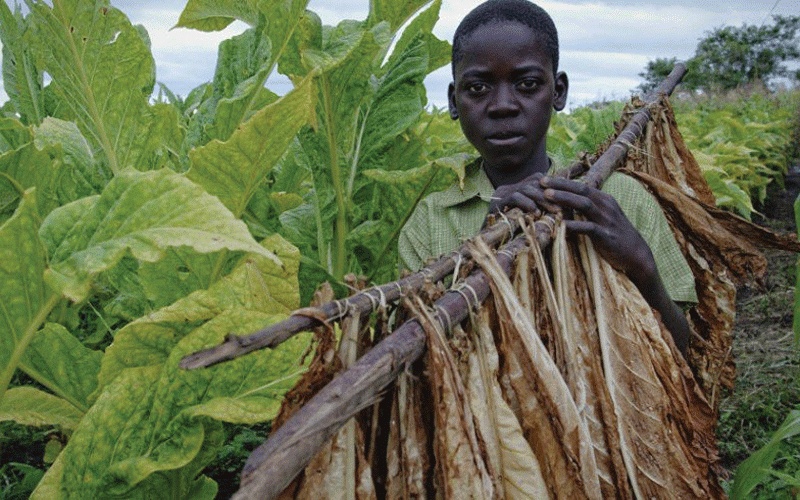
Government in collaboration with the National Employment Council for Agricultural Industry in Zimbabwe (NECAgriculture) say it is committed to fighting child labour in the sector through implementing a cocktail of labour market interventions.
Speaking during a meeting to review child labour policy in agriculture on Friday, director of Labour in the Public Service, Labour and Social Welfare ministry, Clemence Vusani, said eliminating child labour was a key priority with government working to be done with the scourge by 2030.
“To ensure that Zimbabwe attains a free child labour economy by 2030, the government has prioritised child labour monitoring under NDS1. In the national monitoring and evaluation framework, this is also included,” Vusani said.
“It is in this breadth that the government is pursuing a cocktail of active labour market interventions and programming, working with stakeholders in the private sector and CSOs in the spirit of shared national vision underpinned by the principle of leaving no one and no place behind.
“However, since the 2018 report produced by Human Rights Watch on child labour on tobacco farms in Zimbabwe, the ministry has taken a proactive role to defend our agriculture.”
He said the ministry also conducted awareness and advocacy programmes with NECs on child labour concepts.
“Awareness programmes were also done to key sectors of the economy, which include the small-scale artisanal mining sector, sugar industry, tea industry, among others.
“The partnership has managed to strengthen programming and interventions. Today, we are yet to again witnessing another major policy development where NEC is determined to see the finalisation of its child labour policy.
- Zim moves to eradicate child labour in agric sector
Keep Reading
“The conclusion of this policy will no doubt afford the sector to achieve a decent work agenda and also, indeed, will transform the sector to be more productive and increase its contribution to GDP and achieve growth targets envisaged under Economic Growth and Stability Pillar of NDS1,” he said.
NECAgriculture chief executive officer David Madyausiku said Zimbabwe had ratified several relevant conventions to fight child labour in the sector.
“To date, Zimbabwe has ratified three of these, with Convention 129 yet to be ratified. In addition, Zimbabwe has ratified the United Nations Convention on the Rights of the Child. It is a fact that in global terms, child labour is an issue not only in agriculture, as it can exist in a number of industries, but it is a far significant issue in agriculture than in other industries. This is a fact that has been acknowledged by the International Labour Organisation,” Madyausiku said.
“It is a fact made even graver by that agriculture by nature is an enterprise replete with dangers to life and health, in spite of all the advances in the technology of occupational health and safety.”
He added that poverty was the root cause of child labour which must be addressed.
“Poverty is at the very heart of the issue of child labour, as families may struggle to make ends meet and rely on co-opting their children’s labour to supplement their income.
“Poverty, while a significant driver of child labour that must be addressed progressively, cannot be an excuse for the continued practice of child labour, especially as it sacrifices time spent in school, the health of the child and the overall development of the child,” he said.










